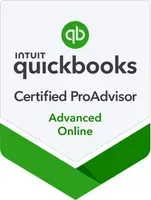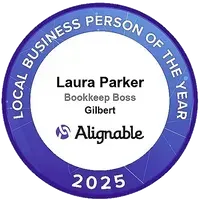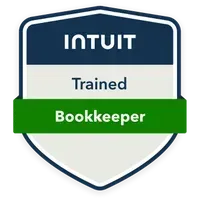Real Estate Bookkeeping for Rentals, STRs, BRRRR Projects, Flips & Multi-Entity Portfolios
Certified Expert in QuickBooks Online (Level 2) | Based in Gilbert, Arizona | Serving Investors Nationwide

Tax-ready and investor-clear with accurate monthly bookkeeping, clean property-level reporting, and consistent workflows.
Real Estate Bookkeeping Designed for Clarity, Accuracy & Property-Level Control
Bookkeeping built specifically for real estate investors. This service supports BRRRR investors, rental property owners, and real estate entrepreneurs who need accurate, organized financials across multiple properties and dependable monthly reporting.
We provide monthly bookkeeping, clean property-level reporting, and accurate financial workflows for rentals, STR/LTR properties, BRRRR projects, flips, and multi-entity portfolios.
This ensures:
- accurate categorization
- clean, reconciled accounts
- correct CapEx vs. repairs
- organized loan and project tracking
- ready-for-CPA financials
- consistent month-end closes
Who This Service Is For
Designed for real estate investors who require organized, property-level financials across rentals, BRRRR projects, flips, and multi-entity portfolios.
Rental Property Owners (LTR + STR)
For landlords and short-term rental hosts who need clean property-level reporting and organized documentation.
You get:
- Monthly rental income + expense categorization
- Clean property-level P&L reporting
- Loan schedules + payment tracking
- Depreciation readiness
- STR/LTR operational expense separation
Outcome: Reliable monthly visibility into performance, trends, and property-level profitability.
BRRRR Investors
For investors who need accurate financial tracking across every BRRRR stage:
Buy → Rehab → Rent → Refinance → Repeat.
You get:
- Rehab spending organization
- Contractor + materials tracking
- Accurate tracking from the first loan draw through the entire rehab and refinance process.
- Correct CapEx vs repairs classification
- Refinance preparation support
- Project-performance insights
Outcome: Clear financials for each BRRRR cycle that support decisions, refinances, and tax strategy.
Fix-and-Flip Investors
For flippers who need accurate COGS, project costing, and clear reporting for listing, closing, CPA review, and annual filings.
You get:
- Flip project costing + rehab tracking
- Holding cost organization
- Basis tracking
- Materials + contractor categorization
- Project profitability calculation
Outcome: Clean, organized numbers for lenders, CPAs, and closing.
Multi-Entity / Multi-Property Portfolios
For investors operating multiple LLCs, SPVs, or joint ventures.
You get:
- Proper inter-company transfer handling
- Accurate owner contributions + distributions
- Entity separation (no crossover errors)
- Entity-level reporting
- Consolidated reporting if needed
Outcome: Clean books across all entities that keep you audit-ready and lender-ready.
Real Estate Entrepreneurs & Passive Investors
For investors who want clarity, organization, and long-term financial visibility without the overwhelm.
You get:
- Monthly books that stay accurate and timely
- Smooth tax prep
- Clear insights into performance
- Organized documentation
Outcome: Confident decision-making backed by clean, accurate numbers.
What’s Included in Real Estate Investor Bookkeeping
Complete monthly bookkeeping built for real estate investors with rentals, STRs, BRRRR projects, flips, and multi-entity portfolios.
Accurate Categorization of Rental Income & Expenses
- Property management payouts
- Owner deposits
- Rent collection apps
- Maintenance & repairs
- Utilities
- Cleaning + turnover
- STR operational expenses
Outcome: Every property reflects its true monthly performance with reliable, consistent, tax-ready categorization.
Monthly Account Reconciliation
- Checking accounts
- Credit cards
- Loans + HELOCs
- Payment apps (Airbnb, VRBO, Venmo, Zelle, etc.)
Outcome: You always know your numbers are accurate, up-to-date, and fully reconciled.
Rehab, Renovation & CapEx Tracking
- Contractor + materials cost tracking
- Project-by-project spend organization
- Capital improvements (CapEx) vs repairs
- BRRRR rehab cost clarity
Outcome: Precise rehab and CapEx organization that is essential for tax planning, strategy, and refinance support.
Loan Payment Breakdown
- Principal
- Interest
- Escrow
- PMI
Outcome: Organized reporting and clean basis tracking for each property or project.
Security Deposit Tracking
- Liability classification
- Refund accuracy
- Transfers between tenants/properties
Outcome: Clean, compliant tracking with zero end-of-year guesswork.
Property-Level & Entity-Level Reporting
- P&L by property
- P&L by class or location
- Portfolio-level summaries
- Entity-specific statements
- Consolidated reporting (optional)
Outcome: True property-level clarity so you can analyze performance, plan acquisitions, and make confident decisions.
Ready-for-CPA Reporting
- Clean monthly financials
- Organized supporting documentation
- Notes for unusual transactions
Outcome: Your CPA receives complete, reliable books with no guesswork, saving time, reducing risk, and avoiding costly errors.
Ongoing Support & Communication
- Portfolio updates
- New acquisitions
- LLC/entity changes
- Project transitions
Outcome: Your bookkeeping always stays synced with your real-world activity as your portfolio grows.
If your books are already behind or unreconciled, we can start with a one-time Cleanup Bookkeeping engagement and then move into ongoing monthly real estate bookkeeping.
Why Investors Choose Bookkeep Boss
- Specialized real estate investor expertise (BRRRR, rentals, STRs, flips)
- Property-level clarity and clean supporting documentation
- Accurate, clean files your CPA wants to receive
- Certified Expert in QuickBooks Online (Level 2)
- Based in Gilbert, AZ with deep Phoenix East-Valley experience
- Serving investors nationwide through streamlined virtual systems
Outcome: Your books become a tool for strategy, not stress.
Frequently Asked Questions
These are the most common questions real estate investors ask when they need property-level accuracy, BRRRR tracking, and dependable monthly reporting across their portfolio.
How should rental property income be recorded in real estate bookkeeping?
Rental property income should be recorded by property and by month, with each payout broken down into its components. This includes management payouts, rents collected, platform fees (if applicable), adjustments, reimbursements, and any tenant refunds. Recording income at the property level gives clear cash-flow visibility and accurate reporting for STR and LTR rentals.
What’s the difference between a repair and a capital improvement for rental properties?
Repairs maintain the property and are recorded as operating expenses. Capital improvements increase value or extend the useful life of the asset and must be recorded as CapEx. Correct classification affects depreciation, tax strategy, and long-term property performance.
How do I track rehab and renovation costs for a BRRRR project?
Track all rehab spending, invoices, contractor payments, materials, loan draws, and reimbursements, in a separate project or property category until the renovation is complete. This keeps BRRRR phases clean, supports refinance preparation, and ensures accurate cost basis tracking.
How should loan payments be recorded for rental or investment properties?
Each loan payment must be separated into principal, interest, escrow, and PMI rather than recorded as a single expense. This ensures accurate loan balances, correct interest reporting, and clean property-level financial statements.
Do I need a separate entity or LLC for each rental property?
Not always. The number of LLCs depends on risk tolerance, lender requirements, and tax strategy. What matters is maintaining accurate bookkeeping at the property level, even if multiple assets are owned under one entity.
How are security deposits recorded in real estate bookkeeping?
Security deposits are recorded as liabilities, not income. Each tenant's deposit should be tracked separately to support refunds, transfers, or forfeitures, ensuring clean reporting and compliance at move-out.
What does property-level reporting include for real estate investors?
Property-level reporting typically includes:
- Monthly P&L by property
- Rental income summary
- Operating expenses
- CapEx activity
- Loan activity
- Net cash flow per property
This gives investors clear visibility into performance across their portfolio.
Do you work with property management and STR platforms like AppFolio, Buildium, or Airbnb?
Yes. We work with property management systems and STR platforms including AppFolio, Buildium, Airbnb, Vrbo, and Lodgify. These platforms often send lump-sum payouts, so we reconcile those payouts to the underlying income, fees, and expenses to ensure property-level accuracy. We also work with payment tools such as Stripe, PayPal, and Venmo when they’re part of your rental or STR workflow.
Do you support real estate investors outside Arizona?
Yes. This service is fully virtual and available to investors nationwide, including rentals, BRRRR portfolios, flips, and STR/LTR properties.
What documents do real estate investors need to provide each month for bookkeeping?
Typically:
- Bank statements
- Credit card statements
- Loan statements
- Property management statements
- STR payout reports (Airbnb, Vrbo, etc.)
- Updates about purchases, sales, or rehab projects
Providing these keeps your financials accurate and up-to-date.
What does STR mean in real estate bookkeeping?
STR stands for Short-Term Rental, referring to stays typically less than 30 days. STR bookkeeping requires tracking income, cleaning fees, turnover costs, platform fees, occupancy taxes, and seasonality.
What does LTR mean in real estate bookkeeping?
LTR stands for Long-Term Rental, meaning leases of 30 days or longer. LTR bookkeeping focuses on stable rental income, repairs, utilities, maintenance, and monthly property-level reporting.
Client Results Snapshot
⭐ Property Level reports for Real Estate Landlord
Cleaned up 12 months of rental bookkeeping for a 19-property portfolio, reconciled all owner statements from the property management company, and rebuilt QuickBooks Online to track income and expenses at the property level. This gave the landlord clear visibility into each property's performance and accurate reporting for the entire portfolio. This level of accuracy helps real estate investors make confident decisions, prepare for tax season, and stay organized as their portfolios grow.
Summary
Bookkeep Boss LLC provides specialized real estate investor bookkeeping for rentals, STRs, LTRs, BRRRRs, fix-and-flips, and multi-entity portfolios. Your books stay organized, reconciled, and tax-ready with accurate project tracking, property-level reporting, and clean monthly workflows built for the way real estate investing actually operates.
Ready for accurate, property-level bookkeeping you can rely on?
Book an Introductory Call
A brief introductory call to confirm fit and explain the next step.
You can also explore all bookkeeping services on the Bookkeeping Services page.
Qualifications & Trust
Credentials, Security, and Professional Standards You Can Rely On
- Recognized as 2025 Local Business Person of the Year, Gilbert, AZ
- Trusted by local CPAs
- Personalized service

Bookkeep Boss LLC provides specialized virtual bookkeeping for real estate investors, law firms, and service-based businesses in Gilbert, throughout Arizona, and nationwide.



